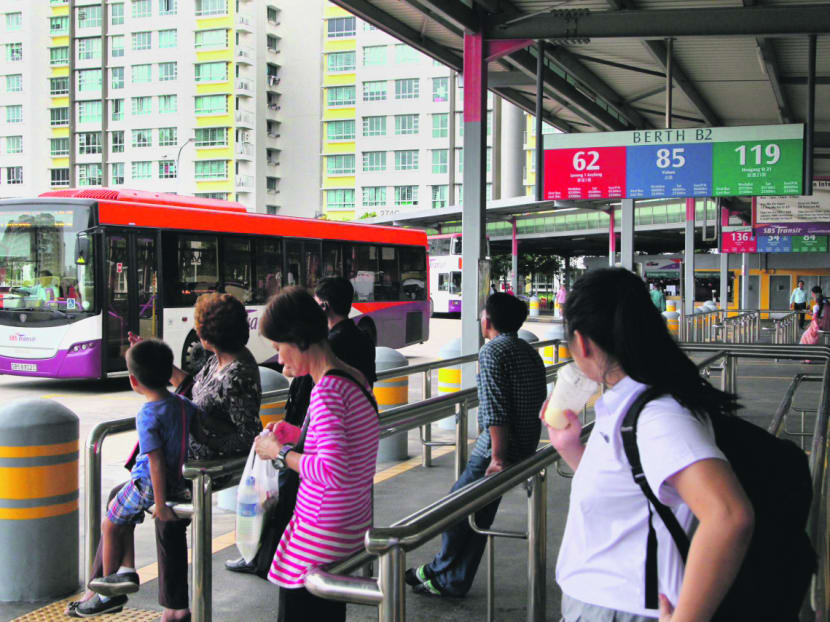Ten bids submitted for Loyang Bus Package
SINGAPORE — The tender exercise for the second bus package closed today (Aug 14) with 10 bids being submitted, mostly from those who were unsuccessful at their first try. For the first bus package put up for tender last year, the Land Transport Authority received 11 bids.
SINGAPORE — The tender exercise for the second bus package closed today (Aug 14) with 10 bids being submitted, mostly from those who were unsuccessful at their first try. For the first bus package put up for tender last year, the Land Transport Authority received 11 bids.
The new entrants who have thrown their hats into the ring for the Loyang package are local firm Tian San Shipping and South Korea’s Kumho Construction and Engineering, who submitted a joint bid.
China’s Jinan Public Transportation Consortium, which went solo for the Bulim package previously, has returned, but has paired with Kok Tong Transport and Engineering Works from Singapore.
The third joint bid came from China’s Jiaoyun Group and Travel GSH (Singapore). The United Kingdom’s Tower Transit, which won the first package, stayed out of the race this time round, saying it wanted to focus energies on gearing up for the 26 routes it will start running from the second half of next year with about 400 buses.
The remaining bidders all participated in the first tender. They include four foreign operators — Australia’s Busways Group, French companies Keolis and RATP Dev Transdev Asia (RDTA), the UK’s Go-Ahead — and three local operators, SBS Transit, SMRT Buses and Woodlands Transport Holdings.
Commenting on the bids during a visit to Serangoon Integrated Transport Hub today afternoon, Transport Minister Lui Tuck Yew said: “Again, the bids will be evaluated based on quality and price, which are the same factors that we used last time.”
The package will be awarded in the fourth quarter of the year, he added.
When contacted, second-time bidder Woodlands Transport’s general manager Roger Wong said the company has been operating transport services in Singapore for the last 40 years.
“If we are fortunate to be awarded the Loyang package, we will immediately reassure commuters of the service level they can expect from a homegrown company that knows,” he said.
Mr Emmanuel Vivant, chief executive officer of RATP Dev Transdev Asia, said: “We decided to bid a second time because we firmly believe in the Singapore government’s vision for public transport.”
He described their proposal as “strong and innovative”, with a focus on enhancing operation and maintenance processes, keeping bus captains motivated, and placing commuters at the centre of their plans.
He added that their company has a strong track record in cities such as Paris, London and Seoul.
Travel GSH owner Chai Yin, who has a fleet of 40 buses, said his company will work closely with the Shanghai-based Jiaoyun Group should their joint bid be successful.
He said in Mandarin: “We’re planning to learn from our Chinese partner and tap on their experiences and adapt this knowledge to Singapore.”
SMRT would only confirm that they had submitted a bid for the Loyang Bus Package.
In a statement today, Tower Transit chief executive officer Adam Leishman said: “Things are ramping up and September is going to be a milestone for us.
“In just a few short weeks, we’ll begin recruitment and by the end of September, the Bulim Depot will have all the amenities to make a comfortable home for our people and our buses.”
Under the new bus contracting model, the Government owns the bus-operating assets, while private operators vie for contracts to run routes. Tower Transit’s winning bid for the first package was an estimated S$556 million, the third lowest.
The Loyang package will comprise of 25 bus services — including three new routes — that mainly cover the Punggol and Pasir Ris areas. The buses will operate out of the new Loyang Bus Depot.
The winning firm will run the services for five years with the possibility of a two-year extension for good performance. It will also be required to operate, manage and maintain the government-owned buses, interchanges and Centralised Bus Fleet Management System.







